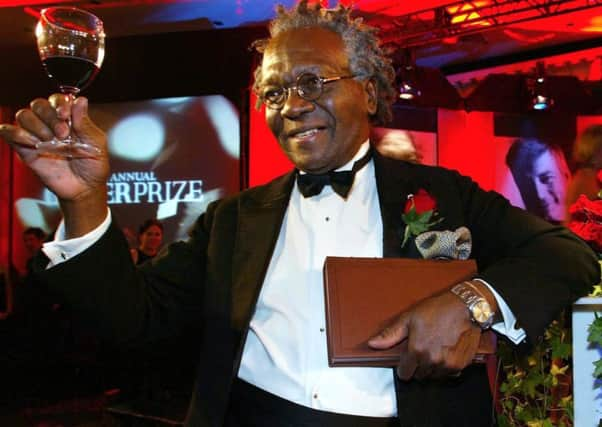Obituary: Austin Clarke, author


Austin Clarke, the award-winning Barbadian-born author who wrote about the immigrant experience and being black in Canada, died Sunday at age 81.
His publicist Denise Bukowski said Clarke died in a hospital early on Sunday morning.
Advertisement
Hide AdAdvertisement
Hide AdClarke won the prestigious Scotiabank Giller Prize and the Commonwealth Writers Prize for his 2002 novel “The Polished Hoe.”
The novel tells the story of Mary-Mathilda, a sugar plantation owner’s black mistress who years later as an elderly woman confesses to a brutal crime. His memoir and final work, titled “Membering,” was published last year. The book describes his moving to Canada in 1955 to study at the University of Toronto, his struggles with racial discrimination and his early days as a journalist covering the civil rights movement in New York’s Harlem in the 1960s.
“Certainly, there is no other black Canadian author who has been so heartily embraced as Austin Clarke,” wrote literary critic Donna Bailey Nurse in a 2003 profile published by the trade magazine Quill & Quire.
Austin Chesterfield Clarke was born in St. James, Barbados, and moved to Canada in 1955 to attend the University of Toronto. He soon turned to journalism and subsequently to fiction.
His first two novels were set in the West Indies: “The Survivors of Crossing” (1964) and “The Meeting Point” (1967).
During the late 1960s and early `70s, Clarke became a visiting lecturer at a number of major U.S. universities, and was among the professors who founded Yale University’s Black Studies program. He also worked as a cultural attache to the Barbadian Embassy in Washington.
He kept writing throughout, publishing “Storm of Fortune” in 1973 and “The Bigger Light” in 1975.
In 1975, he returned to his homeland to become general manager of the Caribbean Broadcasting Corp., returning to Canada in 1976. He failed to win election as a Progressive Conservative candidate for the Ontario legislature in 1977.
Advertisement
Hide AdAdvertisement
Hide AdClarke didn’t become a Canadian citizen until 1981. Asked why he had delayed seeking citizenship for years, he commented at the time, “I was not keen on becoming a citizen of a society that regarded me as less than a human being.”
In the `90s, the accolades began coming. In 1997, his novel “The Origin of the Waves” won the Writers’ Trust Fiction Prize. And his 1999 novel “The Question” was nominated for the Governor General’s Award. In 1998 Clarke was made a member of the Order of Canada.
He won the Giller Prize for “The Polished Hoe” in 2002 after having written 10 novels, five short-story collections and several books of memoirs.
After he was announced as the winner, Clarke said he could not have become a writer without the support of his wife.
He related how he had told her about 40 years ago that he wasn’t going to work anymore.
“And like a real Jamaican woman she said `What are you going to do?’ And I said `I want to be an artist.’ The scream she emitted was heard in Jamaica, where her mother lived at the time.”
Six years later, he made the Giller long list for “More.” The novel tells the story of a Barbadian immigrant who does not leave her Toronto basement apartment. But in her thoughts the woman, whose husband abandoned her years before and whose son has fallen into an unfathomable world of violence and gangs, relives her life.
A funeral service is planned for 9 July at Toronto’s St James Cathedral.